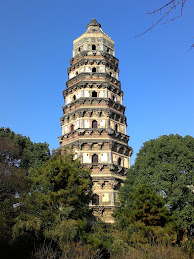English exam does not truly test ability
By Hugo Tseng 曾泰元 (Sunday, Jun 10, 2007, Page 8, Taipei Times)
"Some students started to guess about answers as soon as they got the exam form, and when they were done, they just went to sleep at their desks."
The junior high school Basic Competency Test (BCT) percentile ranks have been announced and for the English section the distribution of results continues a double-peak pattern.
Yet many students and teachers said that the English section of this year's test was easier than ever and that it only measured whether examinees were careful when answering the questions.
Exam monitors also observed that some students started to guess about answers as soon as they got the exam form, and when they were done they just went to sleep at their desks. Such behavior is really unbelievable.
Can this behavior really be explained away by saying it's just a double-peak phenomenon?
I took a careful look at this year's BCT English exam. The content was indeed completely based in everyday life. This is in line with the purpose of the BCT.
For students who aim for high marks by studying outside class and getting familiar with the test's pitfalls, traps and tricks, this is like a cold bath. Such an exam gives them no scope to use their abilities. The most important factor that determines if a student does well is not their abilities or how hard they studied, but how carefully they take the exam.
Because the English section of the BCT only has multiple choice questions and doesn't test writing skills, many junior high students have serious problems with core language skills like spelling or forming sentences. This causes despair among senior high school teachers, because even if they spend a lot of extra time on teaching these skills, it is still very hard to close the curriculum gap.
This year, an essay composition was added to the Chinese section of the exam. Most examinees will make an extra effort to strengthen their Chinese writing skills in order to pass the exam. I think the English section should set a skills threshold. The exam should contain some simple writing, such as Chinese-to-English translation.
For a number of years now, I have been an examiner for the English writing section of university entrance examinations and I have seen some of the problems that senior high school students experience when learning English. But the causes of the appalling exam results lie in junior high school or even earlier.
According to government plans, 12-year public education will be made compulsory in two years. When that time comes, poorer students will have to continue studying English longer. And if they have already given up on English before they graduate from junior high school, how are they to endure another three years in senior high school? How are the teachers supposed to teach them?
This is something that Ministry of Education officials, academics and teachers who are now working on the English curriculum for the 2009 academic year should give some serious thought to.
Hugo Tseng is an associate professor of English at Soochow University, and secretary-general of the Taiwanese Association for Translating and Interpreting.
Translated by Anna Stiggelbout


4 comments:
今天有一個在韓國教英文的外籍老師寫 email 給我,說他在網路上看到這篇,並問了我一些英文能力檢定的專業問題。哈哈,我是外行啦,我只是不務正業,發發牢騷罷了,所以馬上就把他引介給系上一位英文施測與檢定的專家囉。不過看到有迴響,特別是來自校外的、國外的,更是令人興奮呢!
老師,
下次不妨考慮用英文發表你的意見吧! *笑*
剛看了一下網路新聞~
真的有給他嚇到XD
這...
真讓人生氣U_U
不知道你知道這個消息沒?
http://tw.news.yahoo.com/article/url/d/a/070611/17/fnj0.html
*唉*
學術交流的平台樂見其成
by the way,
想問pe1shan同學f的網址後是什麼
好想知道這則網路新聞呢^^
http://tw.news.yahoo.com/article/url/d/a/070611/17/fnj0.html
好怪~
還是看不到嗎?
(那...我網誌有貼XD)
以上.
Post a Comment